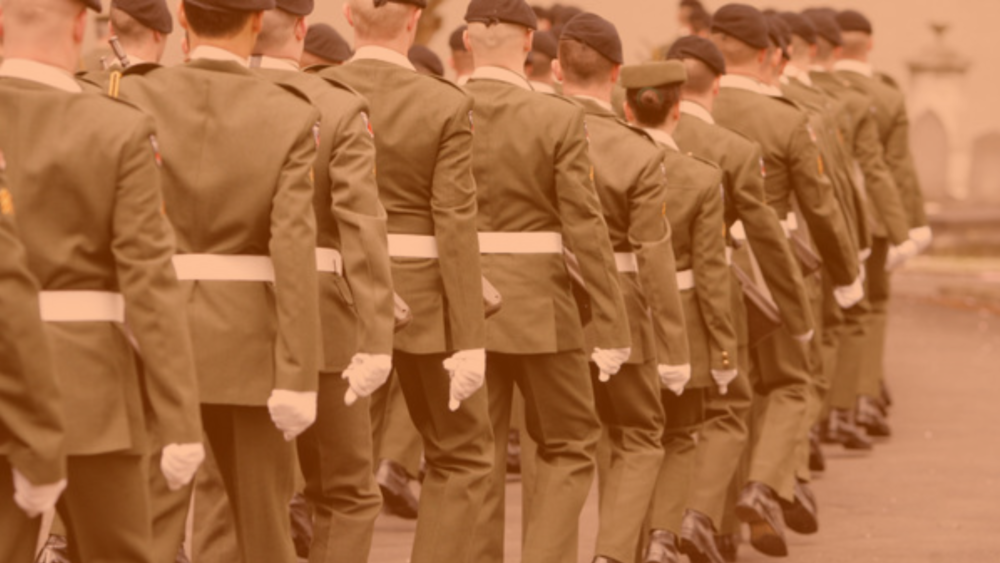With the European Parliament elections set to take place across EU countries from June 7-9, DiEM25 and our electoral organisation MERA25 have outlined a platform advocating for personal and political independence through a universal living income for European residents. This platform also includes a People’s Green Transition, funded by the wealthiest, ensuring that no one is left behind.
The programme calls for Europe to pursue an international policy of Non-Alignment, maintaining independent yet amicable relations with Washington, Moscow, and Beijing. This stance is taken in the context of the EU increasingly handing control to NATO, effectively turning Europe into a dependency of the United States for its military ambitions.
The Irish government has been a keen participant in this process over the past couple of decades. This is evidenced by allowing US military use of Shannon Airport and increasing involvement in EU/NATO militarisation, highlighted recently by the election of the Irish Army Chief of Staff as chair of the EU Military Committee. They are intensifying efforts to further entangle Ireland in NATO’s expansion, which aligns with the US’s aggressive foreign policy. This includes proposing the removal of the ‘Triple Lock’, a crucial element of Ireland’s neutrality and non-alignment policy, which ensures Ireland’s commitment to peace and justice by avoiding participation in conflicts.
The “Triple Lock” was established after the 2001 rejection of the Nice Treaty by Irish voters and was accepted in a 2002 referendum following the Seville Declarations, which assured Ireland’s neutrality. These declarations stated that any participation of Irish Defence Forces in overseas operations requires: (a) Authorisation by the UN Security Council or General Assembly, (b) Agreement of the Irish Government, and (c) Approval by Dáil Éireann.
The removal of the Triple Lock is being led by the Irish Minister of Foreign Affairs, Micheál Martin, who claims that “we are living in a changing world.” However, this overlooks the fact that these changes are driven by vested interests in promoting conflicts to boost the war industry. The Minister argues that Ireland should decide independently on peacekeeping missions without a UN Security Council veto. However, this claim is questionable given remarks by Josep Borrell, the High Representative of the European External Action Service (EEAS). Borrell called for a stronger partnership with NATO and mentioned plans for an EU Rapid Deployment Force of 5,000 troops by 2025. He stated that “there is no alternative to NATO for the territorial defence of Europe” and emphasised strengthening the ‘Transatlantic relationship.’
When Ireland’s Foreign Affairs Minister talks about an “independent policy” for sending troops abroad, he essentially means less independent, deeper subservience to the EU’s EEAS policies and NATO, aligning more with US geopolitical economic and military strategies.
DiEM25/MERA25’s election programme for “Independent Europeans, in an Independent Europe” opposes NATO membership and proposes an alternative EU security and defence policy to decouple Europe from NATO. Key elements of this programme include:
- Limiting the European External Action Service (EEAS) to diplomatic roles
- Ending formal cooperation between the EEAS and NATO, including dual command structures
- Strengthening European arms control protocols, starting with adopting the Treaty on the Prohibition of Nuclear Weapons
- Promoting a “Culture of Peace” through education, journalism, and research
- Initiating a UN-led Parallel Peace Process for conflicts in Palestine, Ukraine, Western Sahara, and elsewhere
- Managing conflicts through a reformed United Nations and transferring control of European military and civilian missions to the UN
Reforming the UN could conceivably include for the Security Council removing the outdated five permanent members mechanism, along with their veto powers. Thus ensuring that genuine peacekeeping troops are not blocked from being deployed as part of any UN process for resolution of conflicts and the successful implementation of peace agreements.
In this EU election cycle, it is crucial to support candidates who are committed to peace and will advocate for these positive proposals, especially in the European Parliament. Such candidates include Yanis Varoufakis in Greece, Karin De Rigo and Johannes Fehr in Germany, Federico Dolce in Italy, and Clare Daly and Mick Wallace in Ireland.
Do you want to be informed of DiEM25's actions? Sign up here










